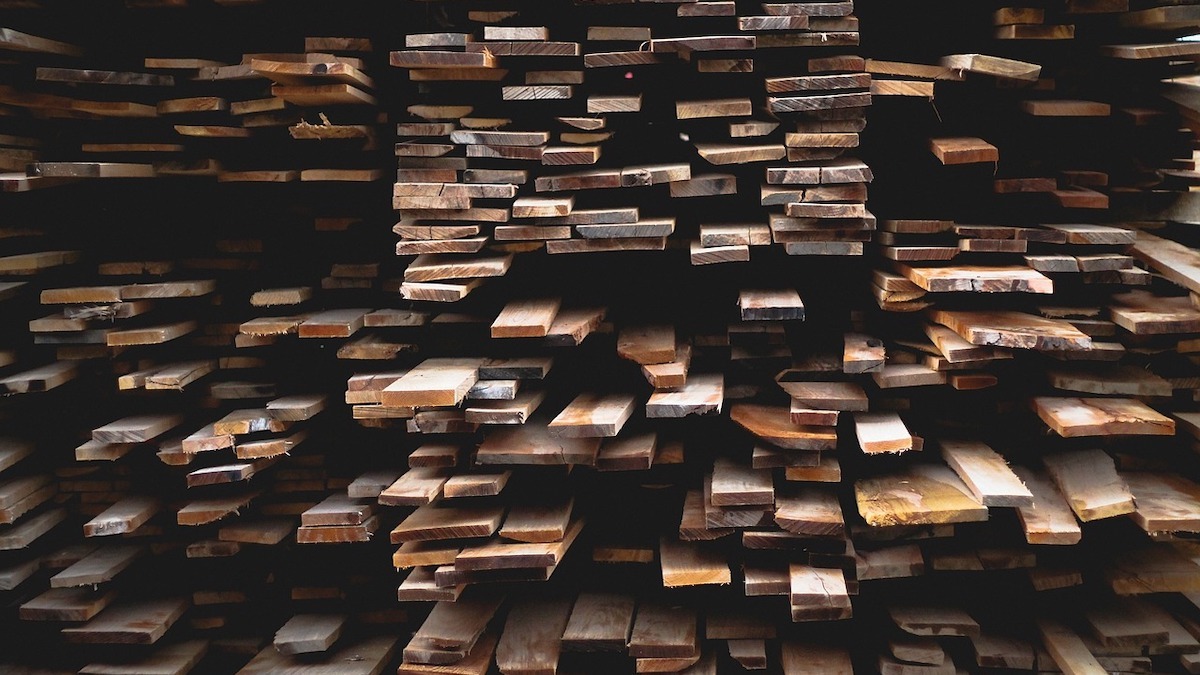PITTSBURGH – An Ohio lumber company denies that it supplied allegedly defective materials that led a Washington County plaintiff to sustain significant structural and mold damage to his property – instead placing the blame with a pair of separate third-party defendants, to whom it filed litigation against.
Nathaniel W. Cale of Chartiers Township first filed suit in the U.S. District Court for the Western District of Pennsylvania on Nov. 16 versus Keim Lumber Company, of Charm, Ohio.
“In or around February 2019, plaintiff and Keim Lumber entered into an oral contract with relation to the project, under which Keim Lumber agreed to furnish certain lumber materials for the construction and development of the residential dwelling on the property, including, but not limited to, boards, joists and trusses to be utilized to install the framing throughout the residential dwelling,” the suit said.
“Prior to entering into the oral contract, plaintiff provided Keim Lumber with a full and complete set of the construction drawings and architectural plans for the project, and said drawings and plans identified the specific lumber materials to be used in the construction of the residential dwelling.”
Cale said he spent $93,222.81 to purchase the lumber materials from the defendant.
Following the installation of shingles, doors and windows immediately thereafter, the plaintiff says the residential dwelling was completely “closed in” and waterproofed by May 8, 2019, such that the entire process from the initial construction and/or framing of the residential dwelling to being “under roof” took approximately 28 days to complete.
Though the materials were properly protected from the elements, the plaintiff says after he and his family moved into the home in February 2020, he discovered “certain unevenness, bowing, movement and dimensional instability in the flooring in the kitchen of the subject property” and “the interior and exterior doors of the subject property do not operate properly and are extremely difficult to open.”
The plaintiff added that the subject joists and lumber materials contained “improper moisture content” and that before the materials were properly dried, he encountered “the rapid development of mold growth upon certain joists that are easily observable, which also creates a potential safety hazard for plaintiff and his family.”
“By failing to properly deliver the joists and lumber materials in accordance with the contract drawings and specifications, as well as the applicable standards of the construction industry, Keim Lumber has materially breached its contractual and warranty obligations to plaintiff. As the direct and proximate result of Keim Lumber’s material breach of its contractual and warranty obligations, plaintiff has incurred, and will continue to incur, significant expenditures to remediate the construction defects,” per the suit.
“In sum, the defective materials as supplied by Keim Lumber for the project has caused plaintiff to sustain significant damages, which, ultimately, has also resulted in the value of the subject property to be severely diminished.”
UPDATE
Keim Lumber filed an answer to the complaint on Jan. 15, denying it was responsible for the deficient materials and asserting numerous affirmative defenses to the case.
“Plaintiff has failed to state a claim upon which relief can be granted and is not the real party in interest, lacks standing, and/or lacks capacity to sue. Plaintiff has failed to join necessary and/or indispensable parties. Any recovery to which plaintiff might otherwise be entitled against defendant, which entitlement is denied, is barred by the negligence and/or intervening and/or superseding acts and omissions on the part of others over whom defendant had and has no control and no duty to control, including plaintiff,” the defenses read, in part.
“Plaintiff’s damages, if any, were the direct and proximate result of its own comparative, intervening and/or superseding negligence, acts, and/or omissions. Plaintiff’s alleged injuries and/or damages, if any, were the result of a poor or incomplete construction by parties other than defendant, plaintiff’s failure to maintain the property, and/or normal wear and tear and/or ineffective repairs made to the real property over time.”
Additionally, the defendant claimed that the plaintiff has failed to mitigate his damages, that the plaintiff’s claims are barred or limited by any all applicable manufacturer’s warranties, by the gist of the action doctrine, by the economic loss doctrine and by terms and conditions of the parties’ written contract documents.
Keim Lumber concurrently filed a third-party complaint against Boise Cascade Building Materials Distribution, LLC of Boise, Idaho and Weyerhaeuser Company of Seattle, Wash., placing the blame for the allegedly sub-standard materials with those organizations.
“The lumber products which were sold by defendant Keim to plaintiff, as alleged in the complaint, were purchased by Keim from Boise Cascade and manufactured by Weyerhaeuser. If defendant is found to be liable to plaintiff, which liability is denied, then such liability was passive and secondary to the active and primary liability of Boise Cascade and/or Weyerhaeuser,” the third-party complaint read.
“Any prospective judgment entered against defendant would be the result of Boise Cascade and/or Weyerhaeuser’s conduct, and/or the condition of the lumber products that were purchased by defendant Keim from Boise Cascade and manufactured by Weyerhaeuser, and then sold by defendant Keim to plaintiff.”
For counts of breach of contract, negligence and breach of warranty, the plaintiff is seeking in excess of $75,000 in his favor and against defendant, Keim Lumber Company, plus interest, costs of suit and for such other and further relief as this Court deems just and appropriate under the circumstances, and a trial by jury.
The plaintiff is represented by Douglas C. Hart of Burns White, in Pittsburgh.
The Keim Lumber defendants are represented by Matthew P. Mullen and John P. Maxwell of Krugliak Wilkins Griffiths & Dougherty, in both New Philadelphia, Ohio and Canton, Ohio.
U.S. District Court for the Western District of Pennsylvania case 2:20-cv-01763
From the Pennsylvania Record: Reach Courts Reporter Nicholas Malfitano at nick.malfitano@therecordinc.com
